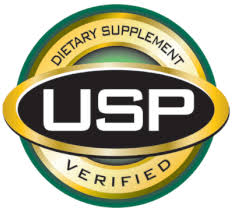How to Choose a Prenatal Vitamin
- Chloe Bierbower

- Feb 14, 2023
- 4 min read
Prenatal vitamins are an important part of a healthy pregnancy, providing essential nutrients to support both mom and baby. But with so many options on the market, it can be overwhelming to choose the right one. In this post, we will discuss what to look for in a prenatal vitamin to ensure you are getting the best possible support for you and your baby.
What are some key nutrients to look for in a prenatal vitamin?
Folate/Folic Acid
Folate is one of the most important nutrients for pregnant women and is essential for preventing birth defects in the baby's brain and spine. It is recommended to start supplementing folate at least one month before conception and throughout pregnancy. Prenatal vitamins may contain folate in its synthetic form known as folic acid or in its biologically active form known as methylfolate (may also be listed as 5-MTHF or L-methylfolate). Methylfolate may be better absorbed and utilized by the body, but either form is appropriate for supplementation. Look for a prenatal vitamin that contains at least 400 micrograms (mcg), but no more than 1,000 mcg of folic acid or methylfolate.
Iron
Iron is necessary for the formation of red blood cells and helps prevent anemia during pregnancy. Pregnant women need 27 milligrams (mg) of iron per day, which is double the recommended daily amount for non-pregnant women. Ideally, your prenatal vitamin should contain 16-20 mg of iron to meet your needs with the rest coming from food. It is also important to note that prenatal vitamins in gummy form do not contain iron so be sure to take a separate iron supplement. If you’re experiencing abdominal discomfort or nausea with your iron supplement, you may want to consider switching to a form that is easier on the stomach like iron bisglycinate.
Vitamin D
Vitamin D is essential for the absorption of calcium which is important for baby’s bone development and maintaining mom’s bone health. Vitamin D3 is the preferred form for supplementation as it is more effective in raising vitamin D levels in your blood. Pregnant women need at least 600 international units (IU) of vitamin D per day, but some women may need more if they have a history of low vitamin D levels. In general, your prenatal vitamin should contain 600-1,000 IU of vitamin D, but it’s best to discuss with your healthcare provider to determine what amount will best meet your needs.
Choline
During pregnancy, choline is essential for baby’s brain development. It is recommended that pregnant women consume at least 450 mg of choline per day. Although some plant-based foods contain choline, it is mostly found in animal products like eggs, meat, and dairy products. In fact, two egg yolks per day can meet your daily choline needs. However, it’s still best to supplement choline as our diets tend to vary from day-to-day and it can be difficult to consume enough every day. Look for a prenatal vitamin that contains 50-250 mg of choline.
DHA
DHA is a type of omega-3 fatty acid that is needed for the proper development of baby's brain, eyes, and nervous system. DHA is mainly found in seafood so supplementation is recommended for those who do not eat fish or their oils. If you require supplementation, make sure your prenatal vitamin contains 200 mg of DHA. Look for Algae-derived DHA if you do not eat fish or their oils.
Vitamin B12
Vitamin B12 is essential for the formation of red blood cells, which carry oxygen to baby. It also helps to maintain the nervous system, which is important for baby’s cognitive development. For those who do not regularly eat animal products, vitamin B12 supplementation is necessary especially during pregnancy. Pregnant women need 2.6 mcg of vitamin B12 per day. Make sure your prenatal vitamin contains enough vitamin B12 to meet your needs.
What else should you consider when choosing a prenatal vitamin?
More isn’t always better
It's important to choose a prenatal vitamin that contains the right amount of each nutrient as excessive amounts of some vitamins and minerals can be harmful to you and your baby. For example, high doses of vitamin A can cause birth defects.
Check the serving size
When choosing a prenatal vitamin, it’s important to be mindful of the serving size listed on the label. The serving size is how much of the product you need to take to meet the listed vitamin and mineral levels. While the serving size for many prenatal vitamins is one tablet or capsule, the serving size of some prenatals can be upwards of four tablets or capsules per day to meet the listed nutrient levels. It’s important to be aware of serving sizes to ensure you take enough to get the right amount of each nutrient. If you don’t like taking a lot of pills, you may opt for a prenatal that requires you to take one tablet or capsule per day. It’s also important to consider that you may end up spending more on prenatals with higher serving sizes, but, ultimately, it’s up to you.
Check for quality control
It's important to choose a prenatal vitamin that is manufactured by a reputable company and that undergoes rigorous quality control testing. Look for a prenatal vitamin that has been third-party tested for purity and potency, that is free from contaminants such as lead, mercury, and other heavy metals, and has been made using safe, sanitary, and well-controlled manufacturing practices. Two common third-party testers are USP and NSF.
When choosing a prenatal vitamin, look for one that contains the right amount of each key nutrient, fits with your needs and lifestyle, and is third-party tested. By taking the time to choose the right prenatal vitamin, you can ensure that you are getting the best possible support for you and your baby. While prenatal vitamins are meant to supplement and fill any gaps in your diet, they are not meant to replace a healthy, balanced diet. A dietitian can work with you to create a personalized nutrition and supplement plan to meet your nutrition needs during pregnancy.















Comments